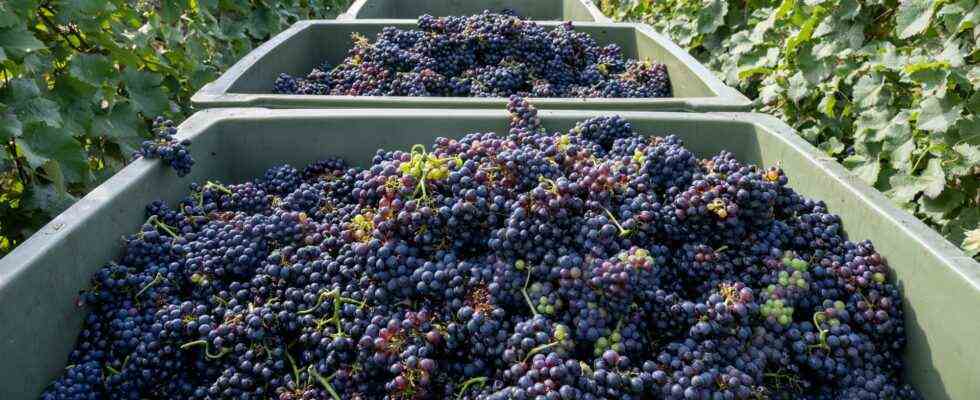report
Status: 15.09.2021 3 p.m.
The tsunami hit the vintners in the Ahr valley hard: Many vineyards, bottle warehouses and machines were destroyed. But thanks to a wave of solidarity, the grape harvest is now beginning with a lot of optimism.
“Now it’s time. Now we’re bringing the 2021 vintage home.” Winemaker Michael Kriechel climbs into the cab of the old Unimog and starts the engine. The vehicle starts moving with a roar. It goes into the vineyards – high above the Ahr valley. This is where Kriechel has his Frühburgunder and it is being harvested today.
A dozen helpers are already waiting in the vineyard: employees, friends, but also many voluntary helpers, as they have been everywhere on the Ahr for almost nine weeks. The wave of solidarity is unbroken. They are also vital for the winemaker. “When the catastrophe struck, I didn’t dare to hope that we’d get the grape harvest this year!” Recalls Kriechel.
The grape harvest after the flood disaster begins in the Ahr Valley
Christian Kretschmer / Christin Jordan, SWR, daily news 8:00 p.m., 9/14/2021
Complete electrics unusable
His winery is a good distance from the river. But the force of the water masses destroyed part of his bottle storage, washed over all the machines in the basement, and made all the electrical systems unusable. Only with the help of the volunteers could the building be cleared of mud and debris. Still nothing has been properly prepared. “We made makeshift repairs to the power lines. Three days ago we received two wine presses on loan – nothing would work here without them,” says the winemaker.
Kriechel cultivates around 27 hectares. His winery is the largest family-run farm on the Ahr. Red wine makes up around 80 percent of its business. He lost almost a hectare of vineyard due to the flood.
Mud instead of a vineyard
A little upriver, Oliver Schell stands on a brown mud that was a vineyard until two months ago. Actually, he would have also harvested Frühburgunder these days. But its entire area, which was planted with this grape variety, has been destroyed. “This was the first vineyard that my grandpa gave me. I planted it three years ago, now I could have harvested for the first time,” he says. Luck in misfortune: His wine press hall has withstood the masses of water. It is a little higher, so he can use his own equipment for harvesting ((on his remaining) vineyards.
The flood destroyed 50 hectares of vineyards in the entire valley – two thirds of them irrevocably. A heavy blow for the Ahr wine-growing region, which with 560 hectares of vineyards is one of the smallest in Germany. The wine is the decisive economic factor here. Gastronomy, hotels and tourism are all dependent on viticulture. As a local recreation area for the greater Cologne-Bonn area, the valley has been a popular excursion destination for decades. On many weekends, the region is literally overrun – it was like that before the flood.
Despite the flood, harvest can largely be processed on site
85 percent of the harvest can be processed directly here on the Ahr, says viticulture president Hubert Pauly. It didn’t look like that at first. At first there were considerations to drive grapes to winemakers on the Moselle. That would have been a great logistical effort. Winemakers from all over Germany have also helped their colleagues on the Ahr in the past few weeks – in addition to their work in their own businesses, which this year requires even more effort and care than usual.
Fungal diseases such as downy mildew have spread widely in many places. The warm and humid weather of the past few days can also cause ripe grapes to rot. The German Wine Institute still speaks of a good vintage so far with an average amount ((for all of Germany)). However, the main harvest has only just begun. It is still too early to make a reliable assessment.
Sludgy wine bottles from the flood areas were partly sold as flood wine.
Image: dpa
“People look ahead”
Back on the Ahr – things are still being tidied up and torn down. Reconstruction is not yet being considered. Pauly finds it all the more important that things continue in viticulture: “People are looking ahead. We have excellently trained winemakers. We have no problems with young talent. We have great vineyards – the Ahr Valley lives from wine – also in the future.”
And Michael Kriechel is also optimistic. “We said we’d tackle it. And now you get the feeling: the departure is here.”

